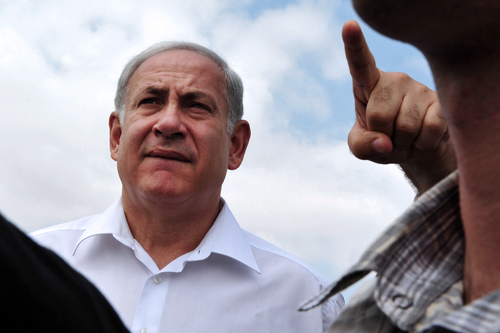
Political murder is a special case of homicide, often collective, as in crimes against humanity, rather than individual, although assassination comes under this heading. I am not referring to acts of violence associated with robbery, heated disputes, or revenge, but something systemic, regularized, ideally, from the culprit’s standpoint, bureaucratized, to hide specific responsibility and involvement. The one who gives the orders is as much implicated as the one who pulls the trigger, possibly more so when command incites to execution, the latter less likely otherwise. Example: Obama has murdered countless individuals through drone assassination, even had he not pored over candidate-lists in the Situation Room. Approval is given, all systems go (!), as his orders are transmitted to operators, like him, thousands of miles from the scene, themselves in comfortable surroundings, playing God to unsuspecting victims. (Today’s NYT, 1-7-15, reports these remote-control assassins are receiving full military honors for their work.) War crimes are best perpetrated when hidden from view; ditto, the murder of individual political leaders.
Enter Netanyahu into the discussion. PBS’s “Frontline” this week traced his rise and political career, and notwithstanding the usual gaggle of apologists for Israeli policies, e.g., Dennis Ross and Martin Indyck, as well as Netanyahu’s own advisers, one sees a compelling narrative of the Rightward drift of Israel’s politics, including scenes of outright fanaticism in which a tumultuous crowd is gathered protesting the Oslo Accords. Netanyahu is not haranguing the crowd from the speakers’ balcony looking down; rather, he is one more face in the crowd, quite relaxed and evidently pleased at the furor created. What do I make of the scene? Quite simply, Netanyahu did nothing to stop the demonstration. Why should he, he was entirely in agreement with it. Here is a leader who uncorks the bottle, the vitriol pouring out; the leader whose consistent hardline agitation over at least two decades shapes the political-ideological environment for extremism, and, no surprise, much of the Israeli public responds favorably.
This is the context for Rabin’s murder. To rephrase, one who pulls the trigger is of secondary importance; even giving the command is not point-specific to culpability when, as here, political hysteria is whipped up so as to become integral to the Israeli political structure, so that a lone gunman no more than identifies and personifies the collective murderous intent to be directed against internal critics and dissenters as themselves somehow transvalued into terrorists and assassins. This hardly lets Netanyahu off the hook: his methodical coldness in discrediting all opposition, matched by an equal coldness in the arbitrary shelling of population-dense Gaza and summary put-down of rock-throwing youth facing colossal military force, is at one with the fate of Rabin, himself no Liberator of the Palestinian people, yet portrayed as, if this were the Christian equivalent, the arch anti-Christ, an Enemy of the People, thus fair game for execution via mob psychology by an enraged public.
Netanyahu did not pull the trigger; Israel did. But history will not absolve him, his actions both before and since making clear, corresponding to his ability to turn out massive demonstrations, control Knesset policy (as in making representatives of peace groups wear identifying marks), and rejection of elementary civil liberties, that the very concept of “extremism” is a misnomer in Israeli society. There are not extremists when in fact at least two-thirds of Israeli citizens are extreme in their dedication to ethnic cleansing, one Jerusalem, xenophobic dimensions attached to the notion of the Jewish State itself—the society is extremist, not the ultra-Orthodox on whom the label is bestowed. Gradations are arbitrary, designed to exonerate the established leadership and its militaristic foundations. This may seem a long way from MIT and Netanyahu’s sojourn in America, yet his carefully planned rise to power does not miss a beat—and his acceptance by the Israeli electorate, a damning indictment of its war-proclivities and national cult of superiority. Rabin was a soldier, but he showed softness when he sought peace (to be equated with weakness and wholly unacceptable to an Israeli public, peace undermining the prototypic ego-structure on display without let-up.)
Is criticism such as the foregoing anti-Semitic? Judaism unnecessarily recapitulates the horrors of the Holocaust, demonstrating to itself the psychological security that comes from blaring to the world an ethos of strength, power, violence—all reprehensible to a Jewish faith in humanity that I admire and try to live by. Let the goyim engage in assassination, what happened to Rabin a quadruple affront to Jehovah. Netanyahu is the anti-Moses, Israeli Jews the Philistines who defy the Mosaic law at every turn. And American Jews slavishly go along, ignoring their long history in this country, until recently, of devotion to progressive and radical causes, reaching out the arm of friendship, indeed solidarity, to blacks, industrial workers, union membership of all kinds, and to the dispossessed in need of representation. This was always a proud heritage of dissent, bearing, like the Rosenbergs, the brunt of anticommunism, and like Schwerner and Goodman, along with their friend Cheney, the brunt of racial injustice and hatred. Perhaps Israelis should rethink their Jewishness, and discover the beauties of justice and peace and respect for the human soul. Fat chance, however, in the present state of affairs.